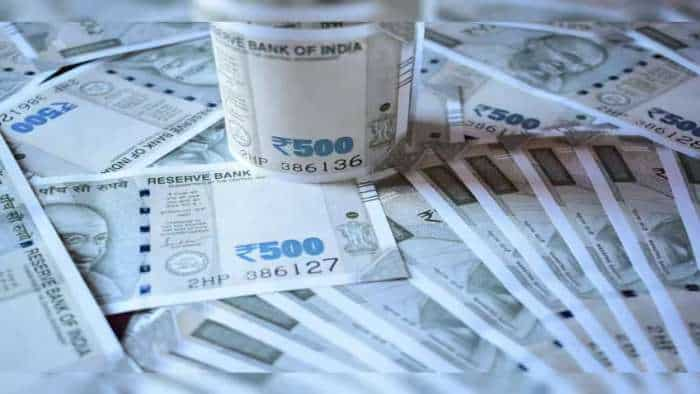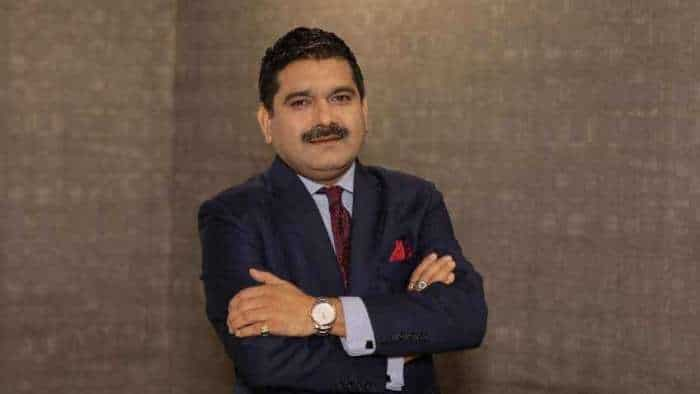Working on Samadhan scheme for stressed accounts: Dina Bandhu Mohapatra, MD & CEO, Bank of India
In an exclusive interview with Zee Business, Dina Bandhu Mohapatra, Managing Director & CEO, Bank of India, said the bank is trying its best to come out from the PCA list and is focusing on a trigger point to move ahead.

Dina Bandhu Mohapatra, Managing Director & CEO, Bank of India, in an exclusive interview with Anurag Shah, Zee Business, said bank is trying its best to come out from the PCA list and is focusing on a trigger point to move ahead. He added that bank is also trying to close some accounts before the deadline of February circular comes to an end. here are the edited excerpts:
Q: The deadline for RBI's February 12 circular is coming close and at such a time I would like to know about the number of cases in your bank that will be resolved and how many will be sent to NCLT before the aforementioned deadline comes to an end.
A: Some accounts will be addressed under the Samadhan (Scheme of Asset Management and Debt Change Structure) scheme. These accounts have reached an advanced level of discussion and I hope that they will be addressed before August 27, 2018. In addition, there are certain accounts with no scope of discussion and will be sent for NCLT, which is a good process and has the ability to address the problem.
Q: Do you think that the power sector accounts, whose cases against Reserve Bank of India's circular are being heard in Allahabad High Court, may create a problem in the process and may need more provisioning?
A: Provisioning is not an issue any more as all banks have met their provisioning requirements. The issue is related to resolution, which will take some time, which is going to be better for all including promoters, banks and other stakeholders. But we are trying our best to address maximum accounts before the deadline and it is our first target at present.
Q: We have seen that the public sector banks (PSBs) are selling their non-core assets to raise cash. Is your bank also planning or working on the same idea and if yes, can you provide details related to its timeline and the amount that will be collected through the process?
A: Capital maximization is a strategy and one issue related to non-core asset monetisation but we have several assets and we hope that we will be able to monetise some assets by September 2018 and rest will be happening in the third quarter of the financial year.
Q: Banks have started reducing their operational costs through certain processes including reducing their real estate space and number of ATMs as well as combining two branches in nearby areas. Is your bank also involved in this process and if yes, then where does it stand?
A: 'Money saved is money earned' is an old saying and it is practised at all levels including your home. Everyone wants to save money by cutting down on his or her expenses on non-essential goods. Similarly, we are also saving money by reducing our expenses on non-essential things, but we are not cutting a single penny that is needed for the business. Saving money is a continuous process and everyone should be involved in it.
Watch this Zee Business video
Q: Your bank is also listed under RBI's Prompt Corrective Action (PCA) list. What is your recommendation for the bank so that it can get some benefits out of it?
A: Currently, we are trying to figure out the best way to get out from the PCA list and then will look forward towards trigger points to go ahead.
Get Latest Business News, Stock Market Updates and Videos; Check your tax outgo through Income Tax Calculator and save money through our Personal Finance coverage. Check Business Breaking News Live on Zee Business Twitter and Facebook. Subscribe on YouTube.
RECOMMENDED STORIES

5X15X25 SIP Strategy: Is it possible to create Rs 1,64,20,369 corpus with Rs 5,000 monthly SIP investment?

Top 7 Sectoral Mutual Funds With Best SIP Returns in 1 Year: No. 1 scheme has converted Rs 34,567 monthly SIP investment into Rs 5,40,565; know about others

Power of Compounding: In how many years, investors can achieve Rs 6.5 cr corpus with monthly salaries of Rs 20,000, Rs 25,000, and Rs 30,000?

SBI Guaranteed Return Scheme: Know how much maturity amount you will get on Rs 2 lakh, 3 lakh, and Rs 4 lakh investments under Amrit Vrishti FD scheme

SBI 400-day FD vs Bank of India 400-day FD: Where will investors get higher returns on investments of Rs 4,54,545 and Rs 6,56,565?
07:45 PM IST









 Star Dhan Vriddhi: Bank of India launches new FD; general citizens to get up to 7.25% interest rate; senior citizens to receive up to 7.75%
Star Dhan Vriddhi: Bank of India launches new FD; general citizens to get up to 7.25% interest rate; senior citizens to receive up to 7.75% Bank of India shares decline over 6% post-Q3 results; here is why
Bank of India shares decline over 6% post-Q3 results; here is why Bank of India stock jumps over 2% after its Q3 update shows increased domestic deposits and global business
Bank of India stock jumps over 2% after its Q3 update shows increased domestic deposits and global business Bank of India Q1 Results: Profit surges nearly three-fold to Rs 1,551 crore
Bank of India Q1 Results: Profit surges nearly three-fold to Rs 1,551 crore Bank of India plans share sale to meet Sebi's minimum public holding norms
Bank of India plans share sale to meet Sebi's minimum public holding norms